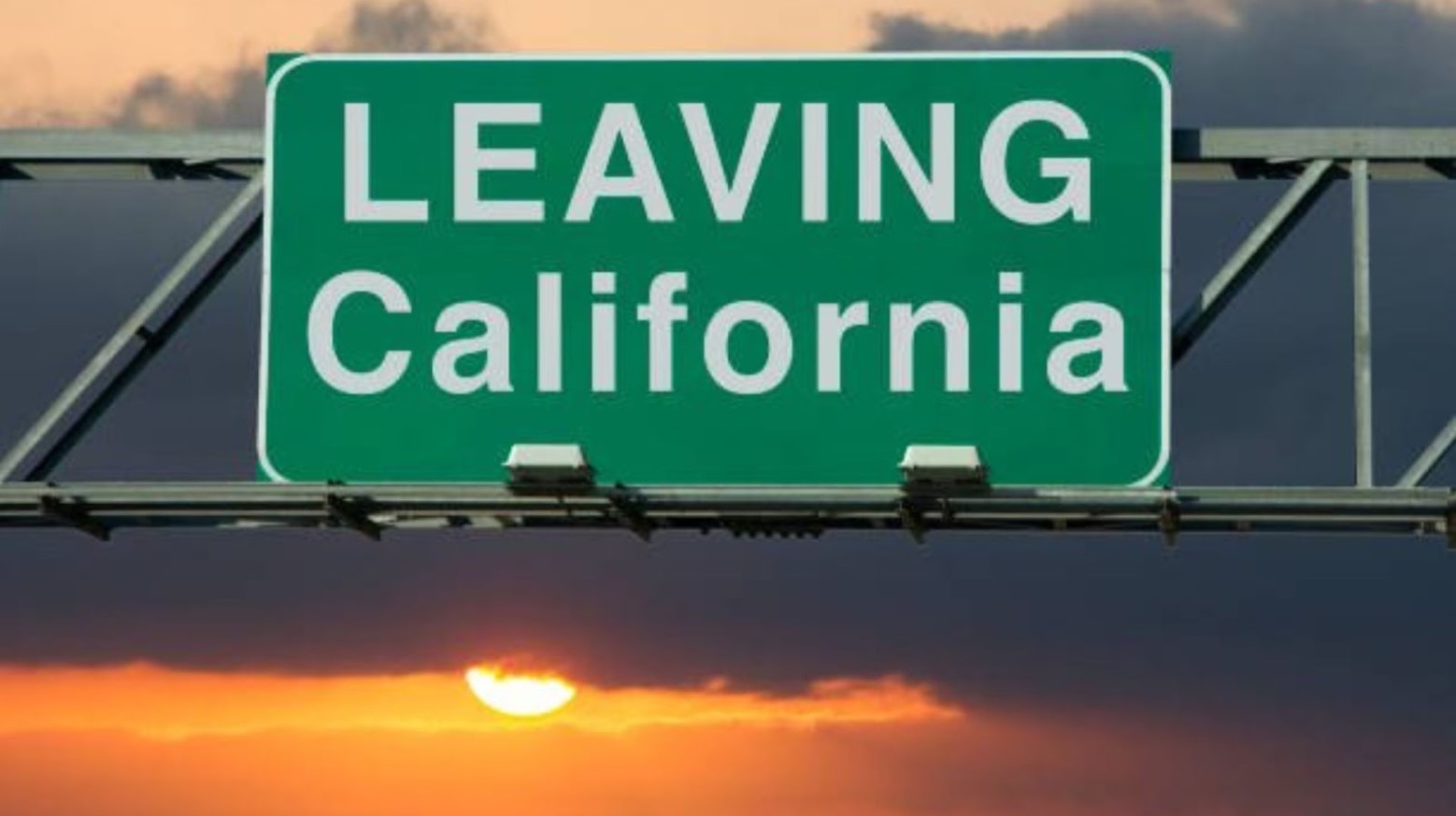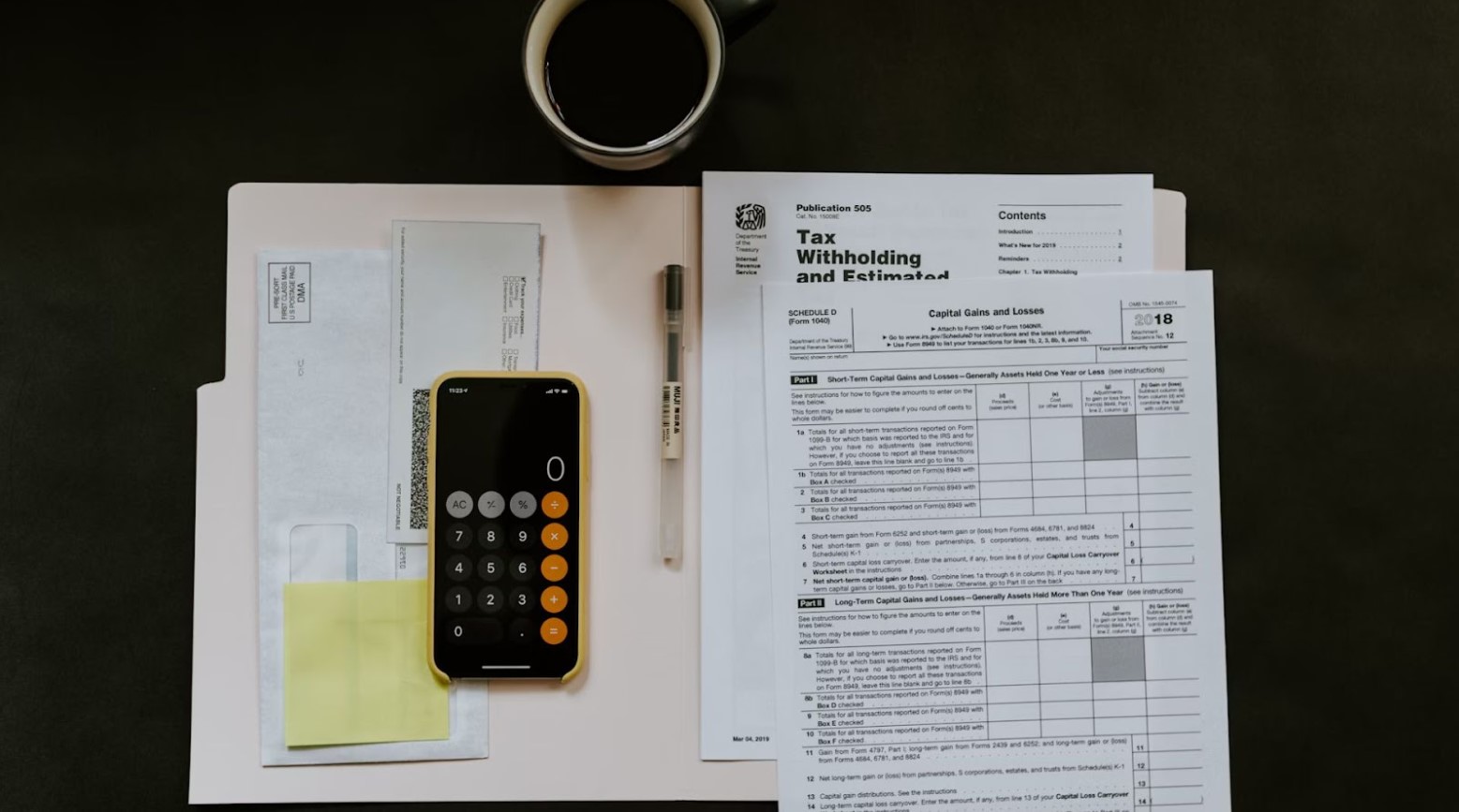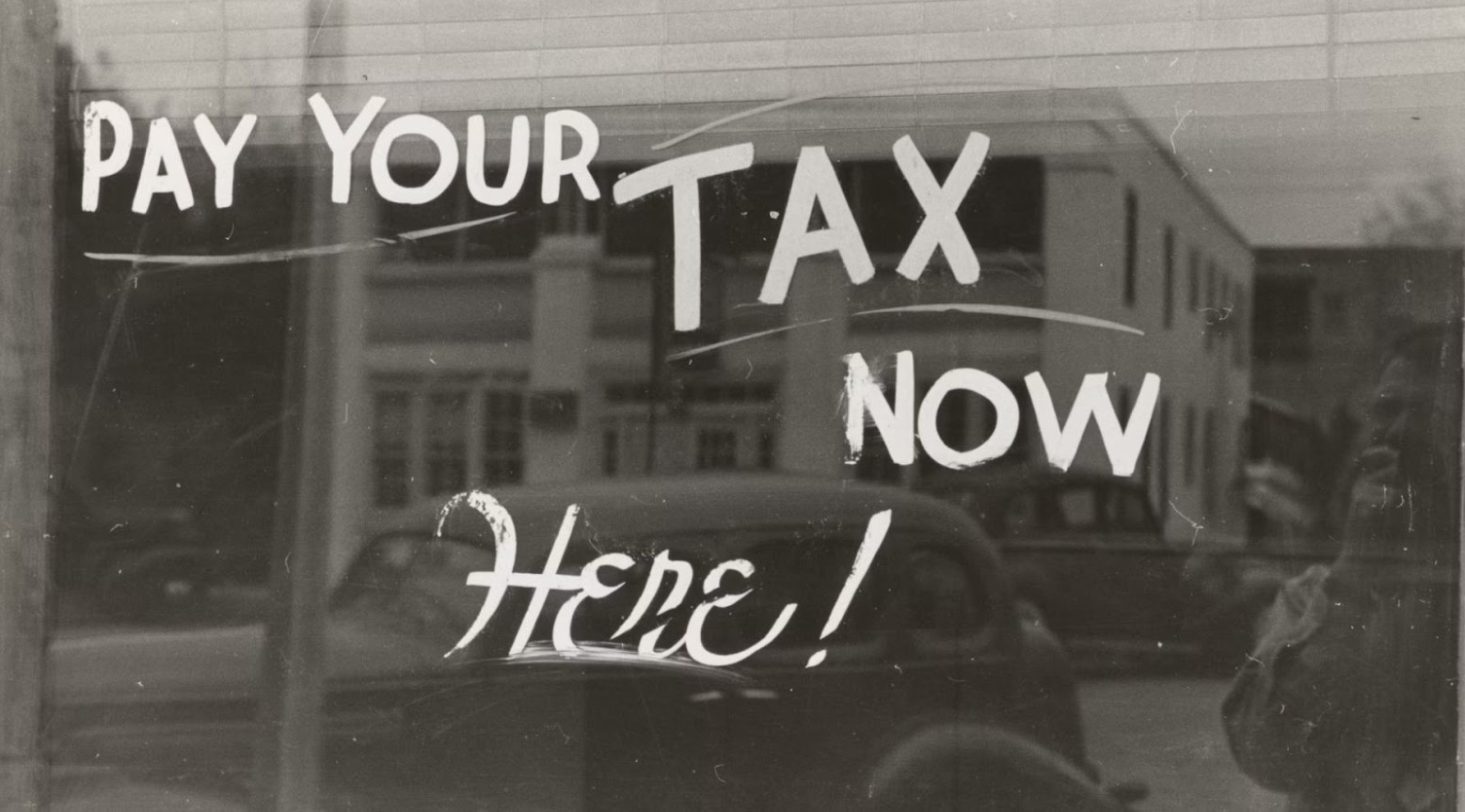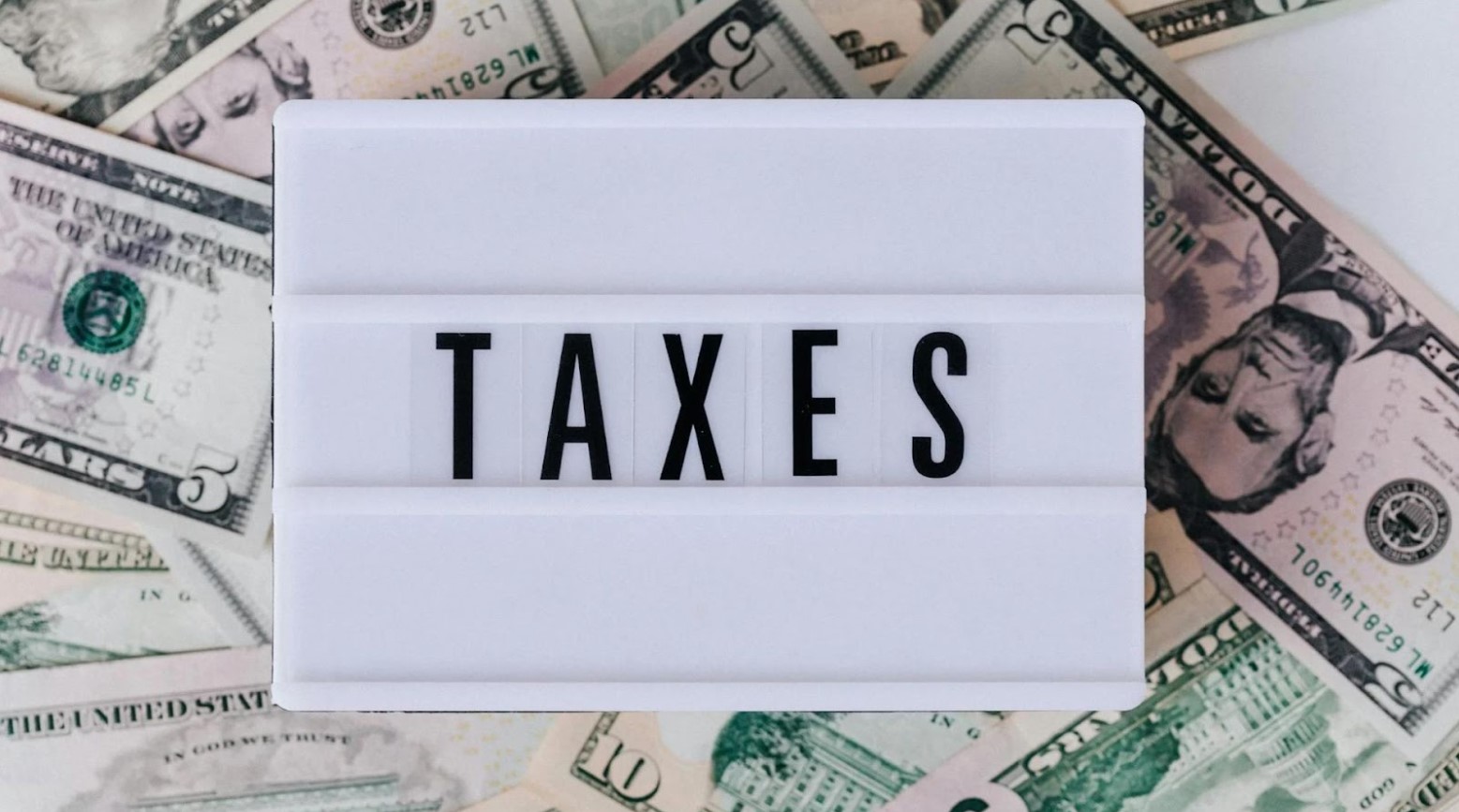California is one of the most expensive states across the U.S., and taxes don’t seem to be helping this. Taxes are up for everything, and residents are getting fed up.
Even paying court fees, regardless of whether you were the one who began the court case or not, has gone up. But how much have California taxes gone up, and are there any signs of them coming down?
Middle-Class Californians Are Struggling

It could easily be thought that only lower-class Californians would be struggling with rising prices, but the middle class, who were once able to lead a comfortable lifestyle, are also struggling.
Anyone who earns $137,000 per year is in the 9.3% annual tax bracket. Post-pandemic issues, such as inflation, increasing housing costs and property and sales taxes, also significantly strain these people financially.
California’s Exit Tax

Even if Californians want to leave in favor of living somewhere cheaper, they still have to pay the price. The Californian government has recently introduced an exit tax for anyone wanting to leave the Golden State.
This is to try and help with the state’s budget deficit, which is currently at $68 billion. The hope is that this will increase revenue, with wealthy residents who will have to pay the most.
Californians Are Leaving for a Tax Break

The main reason Californians are leaving is for a tax break. This is because they believe they are being taxed too high and are hoping that leaving the area in favor of somewhere with cheaper taxes will give them a bit of a break.
It has reached the point in the Golden State where Californians, who have been living there for their entire lives and have all their family and friends there, are being priced out of their own homes by those who can afford to live there.
State Income and Sales Taxes Are High

State income and sales taxes are pretty high for Californians, with high earners paying the most. State income taxes are as high as 13.3% for top earners.
This means losing a significant portion of your paycheck that you have worked hard for. Sales taxes are also high at 7.25%. Additionally, local jurisdictions can also add their taxes, making shopping even more expensive.
High Earners Are Leaving Altogether

It is no surprise that high taxes have led to an ongoing blue-state wealth exodus. The IRS have confirmed California is the biggest income loser at $23.8 billion.
The top income tax rate in California used to be 13.3% for residents earning over $1 million. Since the start of this year, the rate rose to 14.4%. There have even been proposals in Sacramento to hike the top tax rate up to 16.8%.
Property Taxes Are Low, but Gasoline Taxes Are High

What might come as some relief to Californians is that while property taxes are still considered high, they are not the highest in the U.S. However, property taxes and high prices can lead to quite a high bill.
Gasoline taxes in California are among the highest in the U.S. With many having to rely on their car to get from points A to B, either to get to work or to do a food shopping trip, the prices car owners have to pay are becoming extortionate.
California Taxes on Firearms and Ammunition

California introduced a new bill for taxing firearms and ammunition starting July 1, 2024. The tax on these will be 11% to try and cut down on gun violence.
It is also aimed at improving school safety due to the number of school shootings that continue to happen in the Golden State and all across the U.S.
Gun Rights Groups Are Aiming to Sue

Gun rights advocates are pushing back against a new law which has introduced an extra tax on firearm and ammunition sales in an attempt to lower gun violence.
The tax imposes an 11% excise tax on the sale of firearms, firearm parts and ammunition. The new law is expected to bring in $159 million within a year to help fund state programs for gun violence prevention and gang intervention.
Are Taxes Infringing on the Rights of Californians?

The advocates for gun rights have filed a Second Amendment challenge to the new law. The Supreme Court holds that “constitutional rights cannot be singled out for special taxation”.
The aim is to block the new tax as they claim it is a special tax on gun owners. The complaint reads: “If this tax is permitted, there is nothing stopping California from imposing a 50% or even 100% on a constitutional right it disfavors.”
The State Is Preparing to Tax Your Miles

While the gasoline tax is high, it could be replaced with a new tax program altogether.
As the nation’s largest electric vehicle market, there is currently a whole in the state’s budget as the gasoline tax is not as effective as it used to be. Californian lawmakers are hoping to replace the gasoline tax with a mileage-based program to offset the loss. The pilot program is set to start this August.
The New Tax Might Resolve The Drop in Gas Tax

The reason for the piloting of this new program is that the decline in gasoline usage is proving to be a loss for the state at a time where their state deficit has been obscenely high.
Lauren Prehoda, a spokesperson for Caltrans, said: “On average, Californians pay about $300 a year in state gas taxes. EVs have a $100 annual registration fee. That’s a $200-million-a-year-loss.”
Some California Taxes Are Low

Not all California taxes are high, as some people don’t have much to worry about with the taxes they pay. California taxes are next to the national average for families at the bottom of the 80% of the income scale.
Families in the bottom 40% experience cheaper taxes than those living in places such as Florida or Texas.
Other States Tax High-Earners More

Even though California’s high-earners are taxed highly, other states tend to tax their low-earners much more than this. The low-earners are those in society struggling the most with the tax rises.
Sixteen states, including Florida, Tennessee and Texas, tax low-income earners more than California taxes its high-income earners.
California May Not Be A High-Tax State

According to a new study, California may not be a high-tax state. For many in the middle class and below, California might be letting you keep more of your income compared to other states.
The study reports that Californian families whose annual incomes are $145,900 or less had overall less of a tax burden than the national average. On this income, your last $10,000 would reach the 9.3% tax bracket.
Others Are Coming to California for the Same Reason

While Californians are leaving their home state in search for cheaper taxes, other high-tax states are following suit.
People are also leaving Texas in their thousands, with Dallas having more people leaving than arriving as of last year. In Dallas alone, 23,330 Texans left in 2023. In search for a better deal, California is one of the most popular destinations for disenchanted Texans.
Most California Adults Believe They Are Taxed Too High

Despite the findings suggesting that California isn’t the highest taxing state, adults living there seem to believe otherwise. 71% said their taxes are too high.
These views have been held since 2018, and with no signs of taxes coming down anytime soon, Californians experiencing high tax rates could be here to stay.
Residents Paying More Than They Should

Around seven in ten Californian residents believe they are paying more in state and federal taxes than they should be. 31% of those asked believe they are paying much higher taxes than they should be.
Only 26% of Californian residents believe they are being paid roughly the correct amount in taxes, and just 4% believe they are spending less than they should be.
A Long-Term Fix Is Needed

Many agree that a long-term fix is needed to solve California’s tax and financial issues. This includes having to cut worthy public services, such as homelessness prevention and low-income housing funding.
The calls for a fix come as a recession is predicted unless the state and federal governments take action. If this isn’t done soon, it could have even more consequences for California’s population.
High Court Sides with Newsom Over Anti-Tax Ballot

The California Supreme Court blocked a sweeping anti-tax measure before voters go to the polls this November.
The Taxpayer Protection and Government Accountability Act would have made it harder for California to raise taxes in the state, including by requiring the Legislature to seek approval from the voters for any new or higher state tax. Newsom sued last fall to stop the measure as an illegal attempt to impair essential government functions.
The State Needs Money

As unpopular as the hike in taxes is in America, California has to find money from somewhere to keep essential services going.
Two years ago, Governor Newsom celebrated California’s record $100 billion budget surplus only to be met with a $50 billion deficit. Newsom has introduced cuts in healthcare, education and environmental ambitions in order to close the deficit as quickly as possible.
Are Essential Services Worth The Taxes?

Maybe the high taxes could be forgivable if essential government services were performing at a high standard. However, basic services like Medi-Cal, the state’s health insurance program for low-income residents, might change according to the upcoming election.
Newsom’s new budget deal commits $2 billion through 2026 to increase the pay for some doctors and healthcare providers. But the election could undo some of the payment increases.
California Is Taxing Non-Residents

While high earners are leaving the golden state in their thousands, there is still a risk of non-residents receiving an audit.
California has a track record of attempting to tax non-residents. There are many public tax disputes that people have faced after they leave the state. There are even traps you could fall into if you were never a resident in California.
Avoid Receiving a California Tax Audit

Not only is it possible to receive a tax audit despite leaving California for a long period of time, but you can also get taxed on capital gain for having Californian beneficiaries.
The California statute of limitations is four years. The fours years runs from the date you file your California tax return, but that statute would not run if you did not file a return due to not being taxable.
